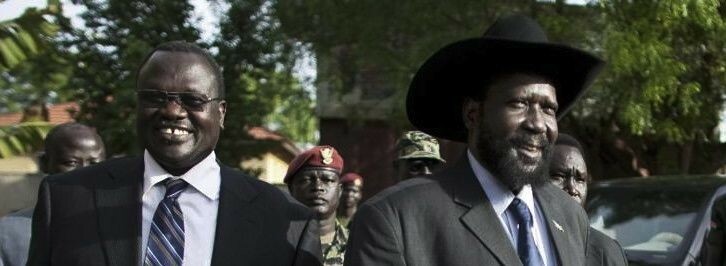A South Sudanese think-tank has released a weekly review saying that elections will likely be conducted nationwide by the end of 2024.
Implementation of the September 2018 peace deal has been slow, and the opposing forces have frequently disagreed over how to share power.
In August last year, President Salva Kiir and First Vice President Riek Machar announced the extension of the transitional government’s time in office for another two years, meaning general elections would be conducted in December 2024.
“Recent efforts by the government to seek UN support for elections and the UN’s positive response are very encouraging. It is in this context that one scholar contends that South Sudan may not be ready for elections, yet democracy cannot wait. Indeed, we acknowledge that challenges abound, reinforcing fears that holding elections might create chaos. Yet this alone does not justify postponing elections or prevent people from exercising their democratic rights to vote,” says the review extended to Radio Tamazuj last week.
“If successful, elections may induce social, political, economic, and environmental benefits. They confer new mandates for the winning party, nurture trust in the political system, ensure a leaner government that should free up scarce resources for development and buttress social protection while dampening public propensity for what economists refer to as Veblen goods or conspicuous consumption,” it added.
The local think-tank, Sudd Institute, stressed that where there are fears over potential post-election challenges, safeguards must be identified to address both perceived and real concerns.
“Informed electorate also remains vital for the conduct of and for popular acceptance of outcomes. Many citizens remain less informed about the contents of the RARCSS [Revitalized Peace Agreement]. Enabling press freedom and providing resources and space to conduct public opinion research would facilitate citizenry participation in elections, constitution-making process, and other critical aspects of the Revitalized Peace Agreement,” the review said.
“Up to the time of this Press Statement, South Sudan occupies a lower rank in the World Press Freedom Index. For the elections to be free, fair, and credible, there is no substitute for press freedom, freedom of assembly and free speech. This is an area (civic space) that demands real action going forward,” it added.
The weekly review authored by Joseph Geng Akec, James Alic Garang and Augustino Ting Mayai pointed out that elections do not happen in a vacuum. The South Sudanese researchers said there is a need for adequate preparations and putting proper safeguards in place.
“Broadly, conducting a national census and redrawing the constituencies, and promulgating the constitution are among the main ingredients although the latter need not be necessarily a prerequisite for holding of elections,” the review said.
The think-tank, however, said there is a need to activate the mechanisms of transitional justice, the non-judicial systems of the Commission for Truth, Reconciliation and Healing and the Compensation and Reparation Authority to promote grassroots community community-reconciliation, healing, and forgiveness.
“The parties should agree to raise funds to conduct the census or at least task the National Bureau of Statistics and the Elections Commission to collaborate to seek funds from partners. This requires strengthening the leaderships of both institutions, giving them an edge to seek external support for the conduct of both census and elections. To do so, essentially demonstrating commitment, the government should allocate sufficient resources for both processes,” the researchers said.
The Think-tank called on the transitional government to move swiftly to operationalize the Political Parties Act, to allow timely registration of political parties and determination of electoral constituencies. It also called for the facilitation of safe, voluntary, and dignified return of refugees and Internally Displaced Persons (IDPs) to their respective states and provide social and psychical security.




